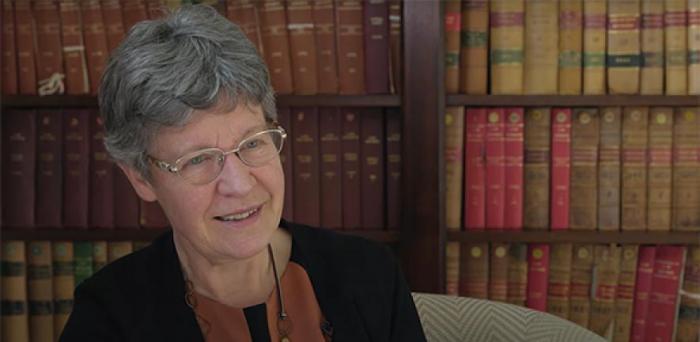Burnell is one of 12 former and current Cambridge researchers, including six women, to be recognised in 2021 for their exceptional research and outstanding contributions to science.
Dame Jocelyn has been honoured for her work on the discovery of pulsars in the 1960s while she was a postgraduate student at New Hall (now Murray Edwards College) carrying out research at Cambridge's Cavendish Laboratory.
Past winners of the Copley Medal have included Charles Darwin, Albert Einstein and Dorothy Crowfoot Hodgkin.
Dame Jocelyn said: “I am delighted to be the recipient of this year’s Copley Medal, a prize which has been awarded to so many incredible scientists.
“With many more women having successful careers in science, and gaining recognition for their transformational work, I hope there will be many more female Copley winners in the near future.
“My career has not fitted a conventional – male – pattern. Being the first person to identify pulsars would be the highlight of any career; but I have also swung sledgehammers and built radio telescopes; set up a successful group of my own studying binary stars; and was the first female president of the Institute of Physics and of the Royal Society of Edinburgh.
“I hope that my work and presence as a senior woman in science continues to encourage more women to pursue scientific careers."
The Copley Medal award includes a £25,000 gift which Dame Jocelyn will add to the Institute of Physics' Bell Burnell Graduate Scholarship Fund, which provides grants to graduate students from under-represented groups in physics.
Three female scientists currently working at Cambridge have been recognised in 2021.
Image: Professor Dame Jocelyn Bell Burnell
Credit: https://www.youtube.com/watch
Reproduced courtesy of the University of Cambridge
